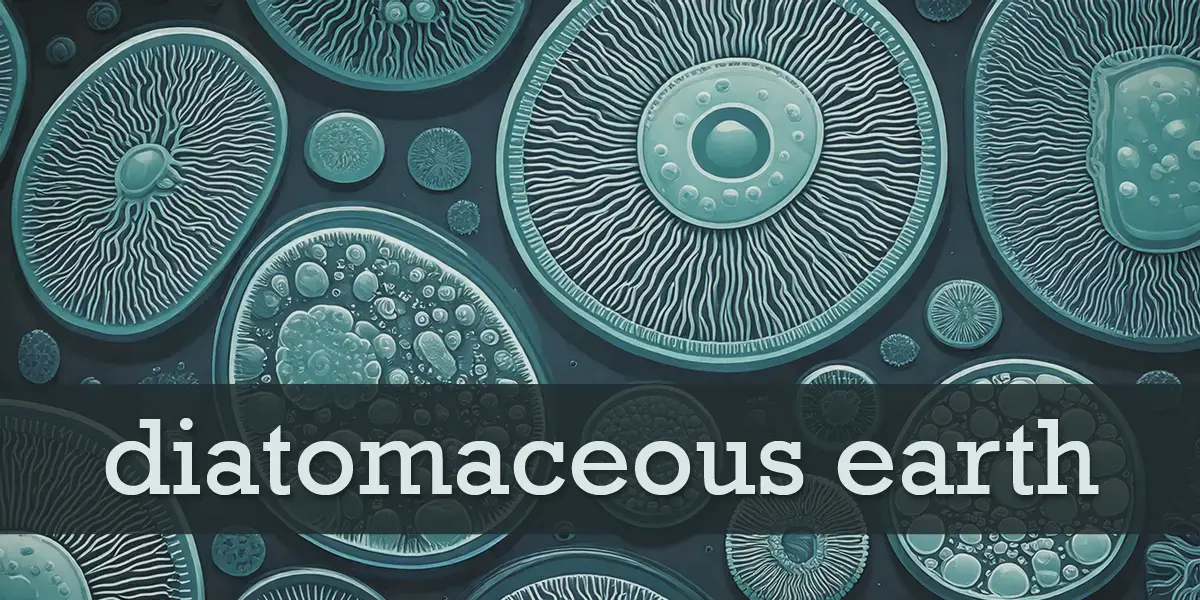The hardest part about diatomaceous earth is the spelling. Once you’ve mastered that, the rest falls into place.
If you’re an organic gardener looking for a natural way to protect plants and improve soil health, diatomaceous earth could be your new bestie. But what exactly is it, and why is it such a hot topic in gardening circles?
What Is Diatomaceous Earth?
Diatomaceous earth (DE) is a soft, crumbly, naturally occurring sedimentary rock composed of the fossilized remains of diatoms, a type of algae. These microscopic organisms collect on the beds of rivers, lakes, and oceans, eventually forming a powdery substance.
This fine, white powder is rich in silicon dioxide and has a variety of practical applications beyond gardening, including in filtration systems, food-grade storage, and even beauty products. That’s right — DE can control garden pests and make you purty, though not in the same package.
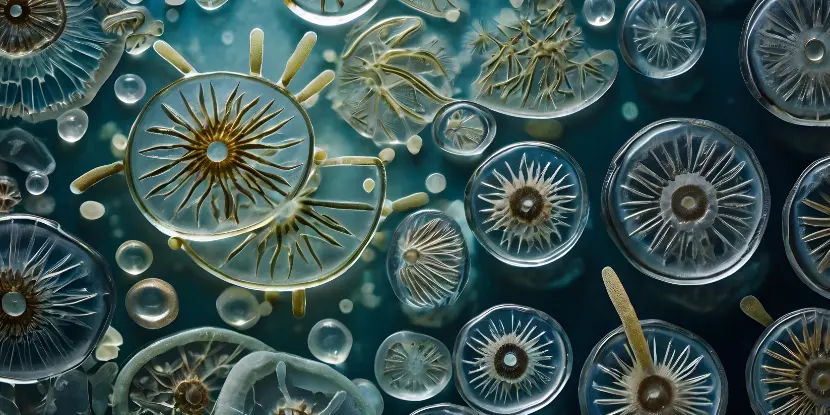
Diatoms floating in freshwater.
Types of Diatomaceous Earth
DE comes in two primary forms:
- Food-Grade Diatomaceous Earth: Safe for humans and pets, it contains less than 1% crystalline silica and is often used in food and health products.
- Pool-Grade Diatomaceous Earth: Contains additional chemicals to filter pools; not safe for gardening or consumption.
For gardening purposes, always stick to food-grade DE.
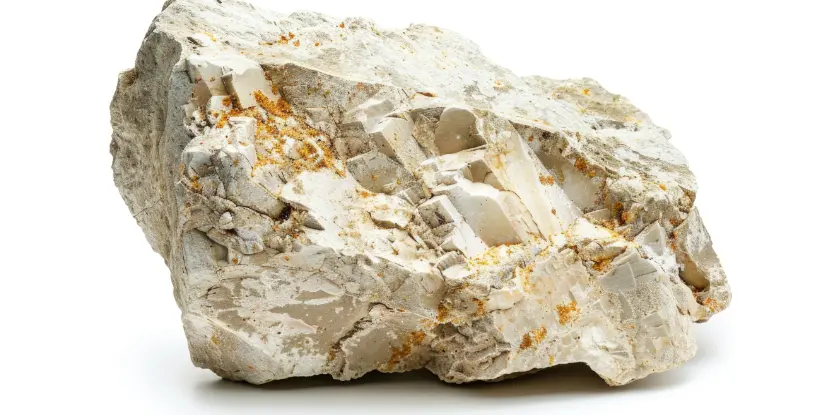
A diatomite rock in its natural state.
Applications of Diatomaceous Earth
Industrial Uses
- Filtration: DE’s high porosity makes it an excellent filtering agent for water purification, beer and wine production, and swimming pool maintenance.
- Abrasives: DE is added to toothpaste, metal polishes, and facial scrubs.
- Absorbents: Its absorbent properties are valuable for cleaning spills, including oil and hazardous chemicals.
Pest Control
Diatomaceous earth also serves as a natural insecticide and soil enhancer. Details to come.
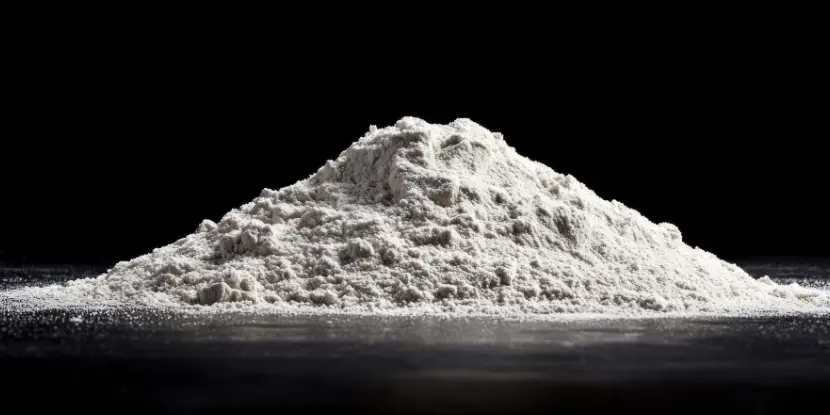
A pile of diatomaceous powder.
Health & Wellness
Proponents claim that food-grade DE improves skin, nail, and hair health and aids in detoxification. Scientific evidence supporting these claims is limited.
Why Diatomaceous Earth Belongs in Your Organic Garden
1. Pest Control Without Chemicals
When intruders like ants, aphids, or slugs contact DE, the powder sticks to their bodies, dehydrates them by absorbing their natural oils, and ultimately kills them. Unlike synthetic pesticides, it won’t harm pollinators like bees and butterflies.
2. Improves Soil Health
Diatomaceous earth is rich in silica, a mineral that strengthens plant cell walls. Adding DE to your soil promotes stronger, more resilient plants while improving drainage and structure.
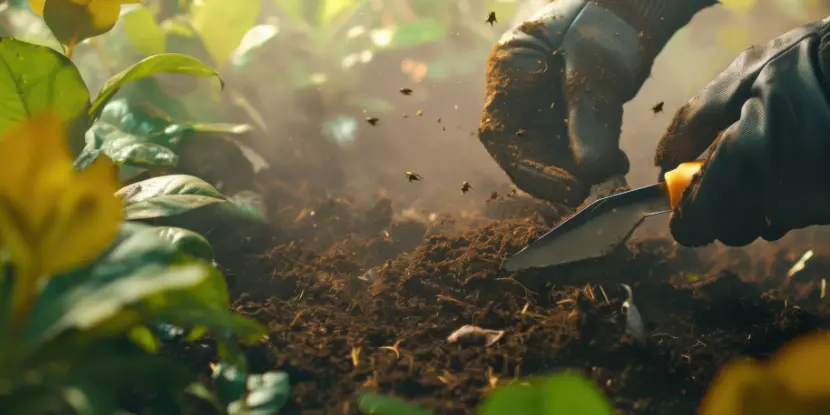
A gardener adds diatomaceous earth to garden soil.
3. Safe for Humans & Pets
Unlike toxic pesticides, food-grade DE is safe for humans and animals when used responsibly.
4. Sustainable & Eco-Friendly
DE is biodegradable and won’t leave harmful residues in the soil or water systems.
How to Use Diatomaceous Earth in Your Garden
1. Pest Control
How to Apply
Use a powder duster to dust DE lightly onto plant leaves, stems, and surrounding soil. Ensure the leaves are dry before applying. DE is less effective when wet.
Target Pests
- Ants
- Aphids
- Slugs and snails
- Beetles
- Fleas and termites in your yard
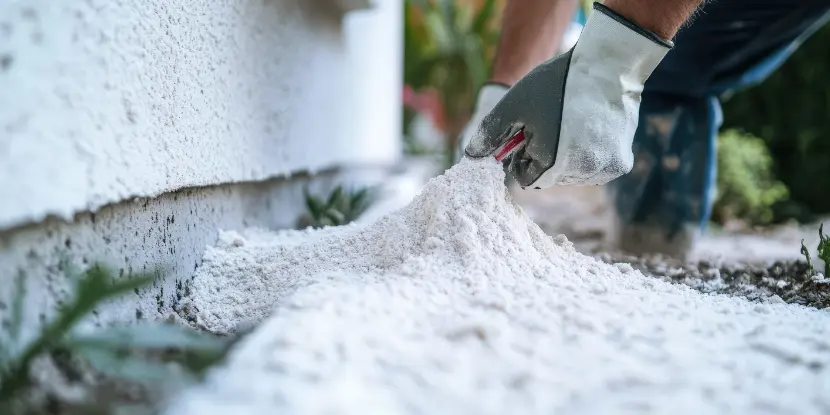
Diatomaceous earth can protect your home against insect invaders.
2. Enhancing Soil Quality
Mix small quantities of DE into your soil to boost silica content and improve structure. Apply during the planting phase or after crop harvesting to condition your soil for the next planting cycle.
3. Protect Against Storage Pests
Sprinkle DE in areas where fruits, vegetables, or seeds are stored to keep pests like weevils and moths at bay.
4. Slug & Snail Control
Create DE barriers around plants that are vulnerable to attack by crawling pests. Reapply after heavy rain.
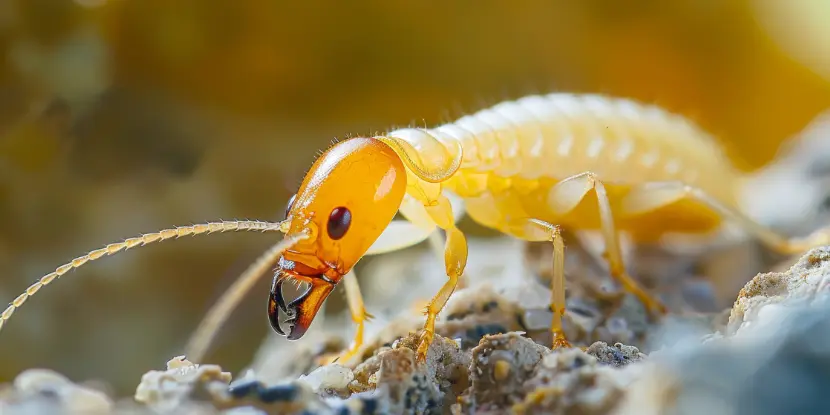
A termite struggles in diatomaceous earth.
Other Gardening Uses for Diatomaceous Earth
- Compost Additive: Add a small amount of DE to your compost bin to deter pests and improve nutrient content.
- Natural Deodorizer: Sprinkle DE in garden areas with strong odors (such as compost piles or pet areas) to neutralize smells.
- Protect Bulbs and Tubers: Before planting, coat bulbs and tubers with diatomaceous earth to protect them from diseases and pests.
- Greenhouse Pest Management: Use DE to suppress pests inside greenhouses, where chemical-free solutions are critical.
Safety Precautions
- Always use food-grade DE.
- Wear a mask when applying to avoid inhaling the powder.
- Keep out of reach of children and pets to prevent accidental ingestion.
- Apply on calm, dry days to maximize effectiveness.
Where to Buy Diatomaceous Earth
Try Anawalt Lumber! Diatomaceous earth is available at garden centers, hardware stores, and online retailers. Look for food-grade DE with a high silica content (at least 85%). Some pet stores also carry it as flea treatments for cats and dogs.
FAQs: Diatomaceous Earth in Gardening
Q: Is DE safe for all plants?
Yeah, buddy! When applied correctly, DE is safe for all plants. Avoid overusing it on flowers, as the powder may deter pollinators.
Q: How often should DE be reapplied?
Reapply DE after rainfall or heavy watering, as it becomes less effective when wet.
Q: Can DE harm beneficial insects?
Yes, if applied carelessly. Avoid using it on flowers or during pollination periods.
Q: Is DE safe to use around pets?
Food-grade DE is safe for pets. However, avoid inhaling the fine particles during application, as they can irritate the respiratory system.
Q: Does DE have an expiration date?
No, DE doesn’t expire, but it’s best stored in a dry and sealed container.
Q: Can DE control indoor pests, too?
DE is effective against common household pests like cockroaches, silverfish, and fleas.
7. Where can I buy food-grade DE?
Most garden centers, organic stores, and online retailers stock food-grade DE.
8. Is DE safe for edible plants?
Yes! DE is safe to use on vegetables, fruits, and herbs.

